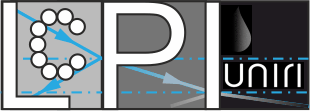The University of Rijeka is located in the region of northern coastal Croatia. Established in 1973, it has since evolved into a comprehensive academic hub, recognized for its commitment to academic excellence, research, and innovation. The Centre for Micro and Nanosciences and Technologies (NANORI, https://nanori.uniri.hr/), nestled in the picturesque setting of the university campus, provides the infrastructure for several research groups working in the field of material science, experimental solid state physics and physical chemistry. The Laboratory for Colloids, Polyelectrolytes and Interfaces (https://collsurf.uniri.hr) conducts research at the boundary between physical chemistry and applied physics.
Role Description
This is a full-time (1 year with possibility for prolongation) on-site role for a research assistant (PhD student or postdoctoral researcher) at the Laboratory for Colloids, Polyelectrolytes and Interfaces, NANORI, University in Rijeka. The research assistant will be responsible for day-to-day tasks associated with conducting research at the boundary between experimental physical chemistry and applied physics, such as performing sample preparations and measurements, developing the experimental and data analysis methods, analyzing data, writing reports and scientific papers, contributing to project dissemination activities etc. She/he will be supervised by and reporting to the PI, her/his performance and advance will be subject to evaluation as a prerequisite for a prolongued engagement. Depending on her/his preferences and competence, she/he may be minorly involved in teaching tasks.
The research assistant will be performing research activities defined within, but not limited to, the EU-funded research project executed by a consortium of partners with strictly defined roles. Within this project, she/he will maintain correspondence and collaborate with several external partners. It is expected that the research assistant will significantly contribute to the development of the experimental and data treatment methodology in the field of optics and spectroscopy (absorption spectroscopy, spectroscopic ellipsometry, electrochemical impedance spectroscopy, etc.) as well as electrochemical and electrical measurements related to the ion-to-electron charge transfer in composite thin films that may exhibit a range of structural properties resulting in complex optical and electrical response, such as phase inhomogeneity and percolation effects, anisotropy, charge carrier and Mie’s scattering etc.
It is essential that the candidate is building his career on solid scientific knowledge, dedicated beyond compromise to the high ethical principles and bottom-up approach in scientific research, is self-driven yet highly responsible, ready to plan day-to-day research tasks and report results to the PI, communicate joint tasks with partners, has good practice in time management as well as balanced passion and patience necessary for highest quality research.
Qualifications
- MSc or PhD in physics or physical chemistry, or related fields
- Strong skills in experimental physics and/or physical chemistry.
- Theoretical knowledge in some of the fields: optics, spectroscopy, solid state physics, electrodynamics, physical chemistry of ionic solutions and polyelectrolytes, electrochemistry, colloids.
- Programming (Igor Pro, Python, Mathematica or similar) of data analysis routines, understanding of the underlying mathematics (a good practical knowledge of linear algebra is a must).
- Proven experience in teaching or mentoring undergraduate students (for postdoc applicants).
- Excellent written and verbal communication skills.
- Ability to work independently and as a part of a team.
- Strong problem-solving and critical thinking skills.
- Strong publication record in some of the fields: physical chemistry, solid state physics, atomic or molecular physics (for postdoc applicants).
- Experience in spectroscopic ellipsometry is a plus.
Required documentation:
- Curriculum vitae,
- Motivational letter,
- Citizenship certificate or proof of citizenship of another country,
- Copy of the proof of the academic degree of Doctor of Science, in English or Croatian language,
- Overview of scientific, teaching, or professional activities (for postdoc applicants)
- Evidence supporting the qualifications listed in the CV and in the Overview, as well as publications (.pdf) relevant for the selection (for postdoc applicants)
- Letter of recommendation from the mentor and another experienced scientist in the field of the master or doctoral dissertation, or postdoctoral work (in case the candidate has already accomplished postdoctoral training).
Benefits
The salary, competitive within Croatia’s salary scale, will depend on the previous experience of the applicant (PhD or postdoc). All regulations prescribed by the Croatian law, including the person-specific rights and benefits, apply to this position.
Recruitment
The university reserves the right to conduct a knowledge, skills, and abilities assessment through an interview and/or testing process for applicants, about which the applicants will be timely informed. If an applicant fails to respond to the invitation for testing or an interview, it will be considered that they have withdrawn their application. Incomplete and untimely applications will not be considered. Applicants will be informed of the results of the competition in a timely manner.
Applicants are kindly invited to submit their application and all the required documentation to: dcakara@uniri.hr
The university reserves the right not to make a decision on the selection of candidates without providing specific justification.
An applicant who has obtained qualifications abroad, in the case of selection, is obliged to obtain an opinion on foreign educational qualifications (under the jurisdiction of the National ENIC/NARIC Office of the Agency for Science and Higher Education) before entering into an employment contract.
Earliest starting date: 1. May 2024.
This call is currently open ().
For all additional information, please contact assoc. prof. Duško Čakara (dcakara@uniri.hr)

